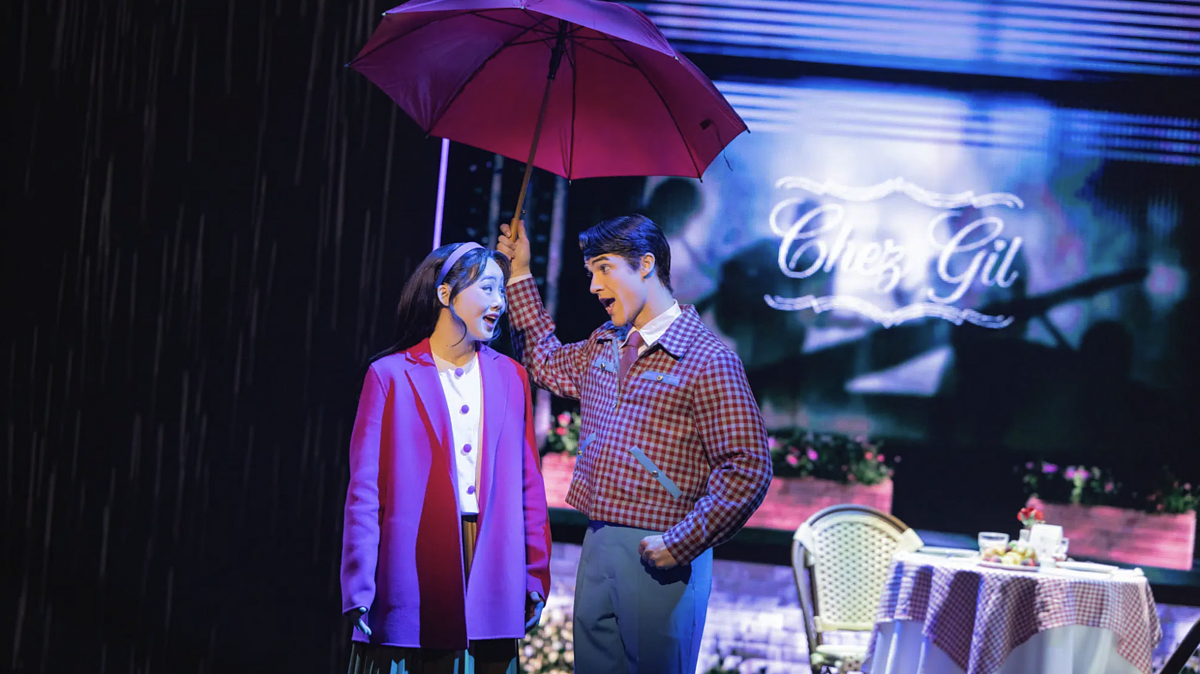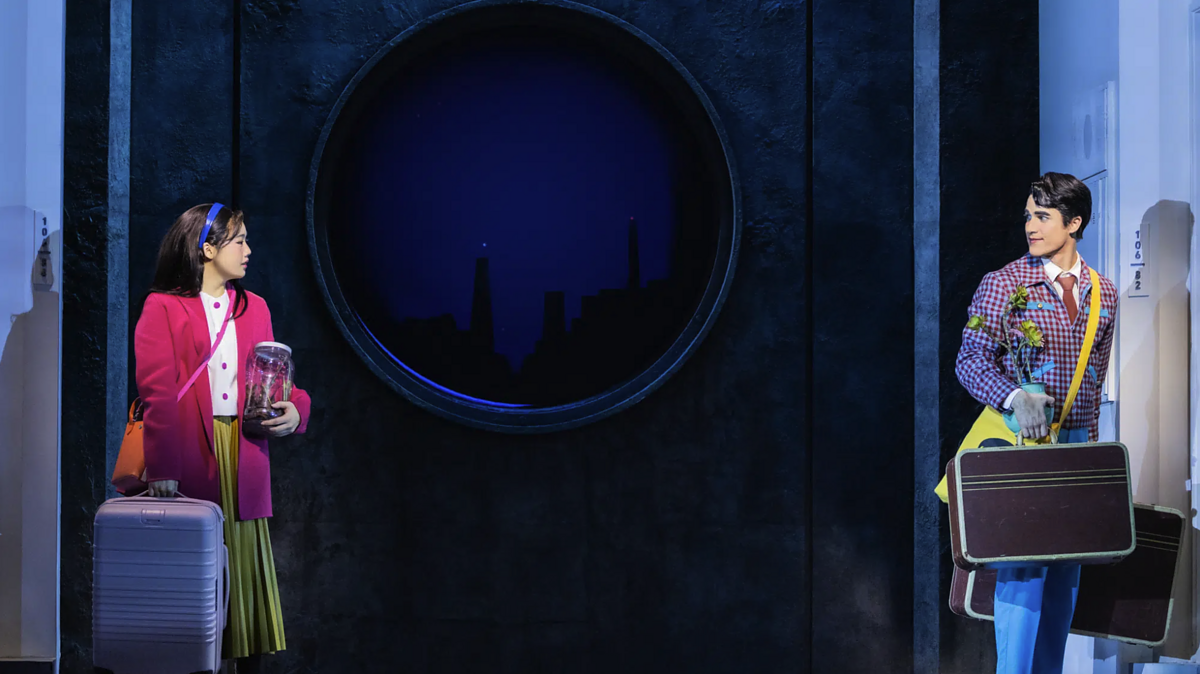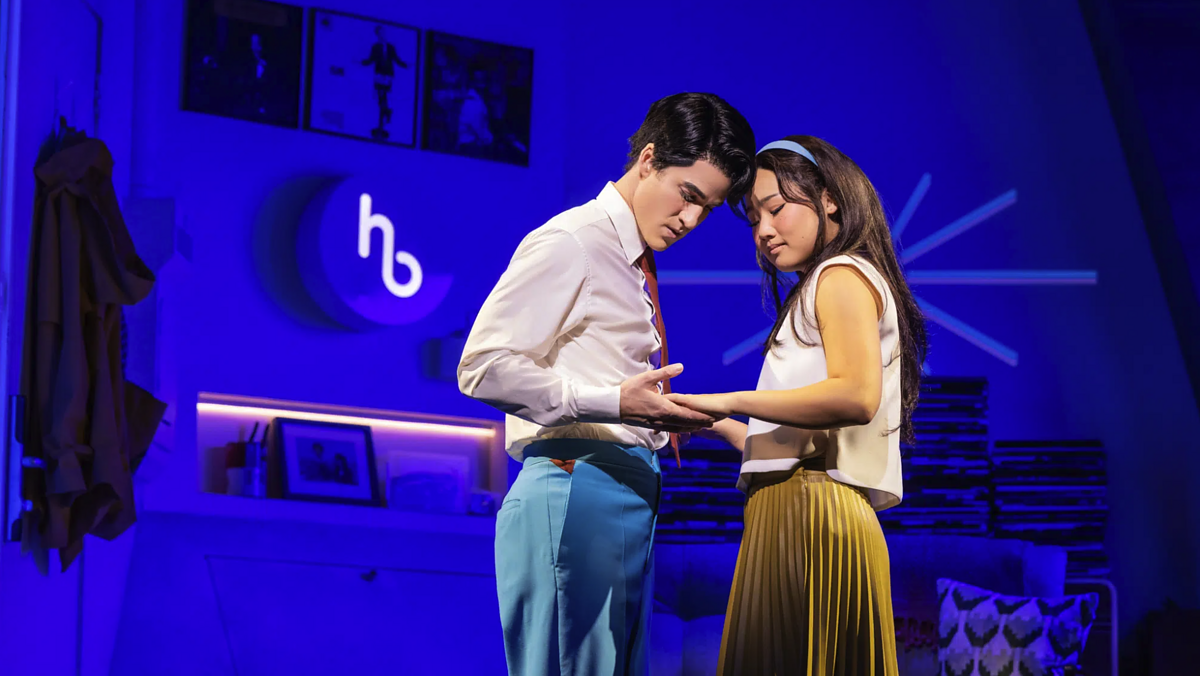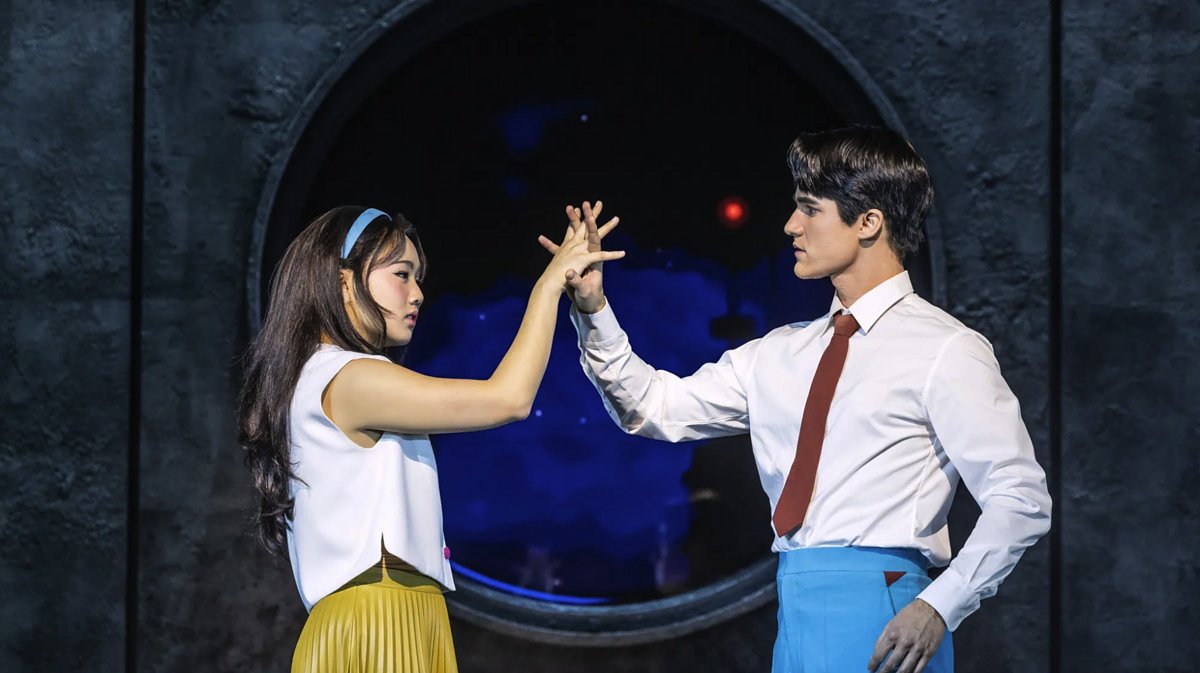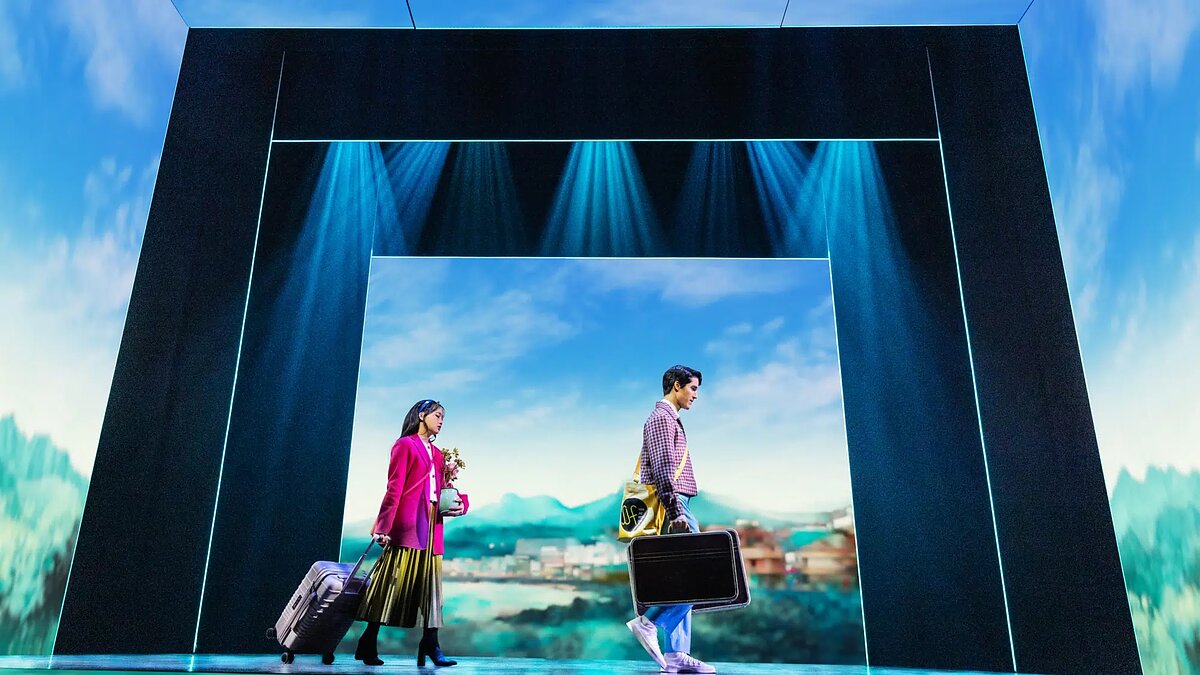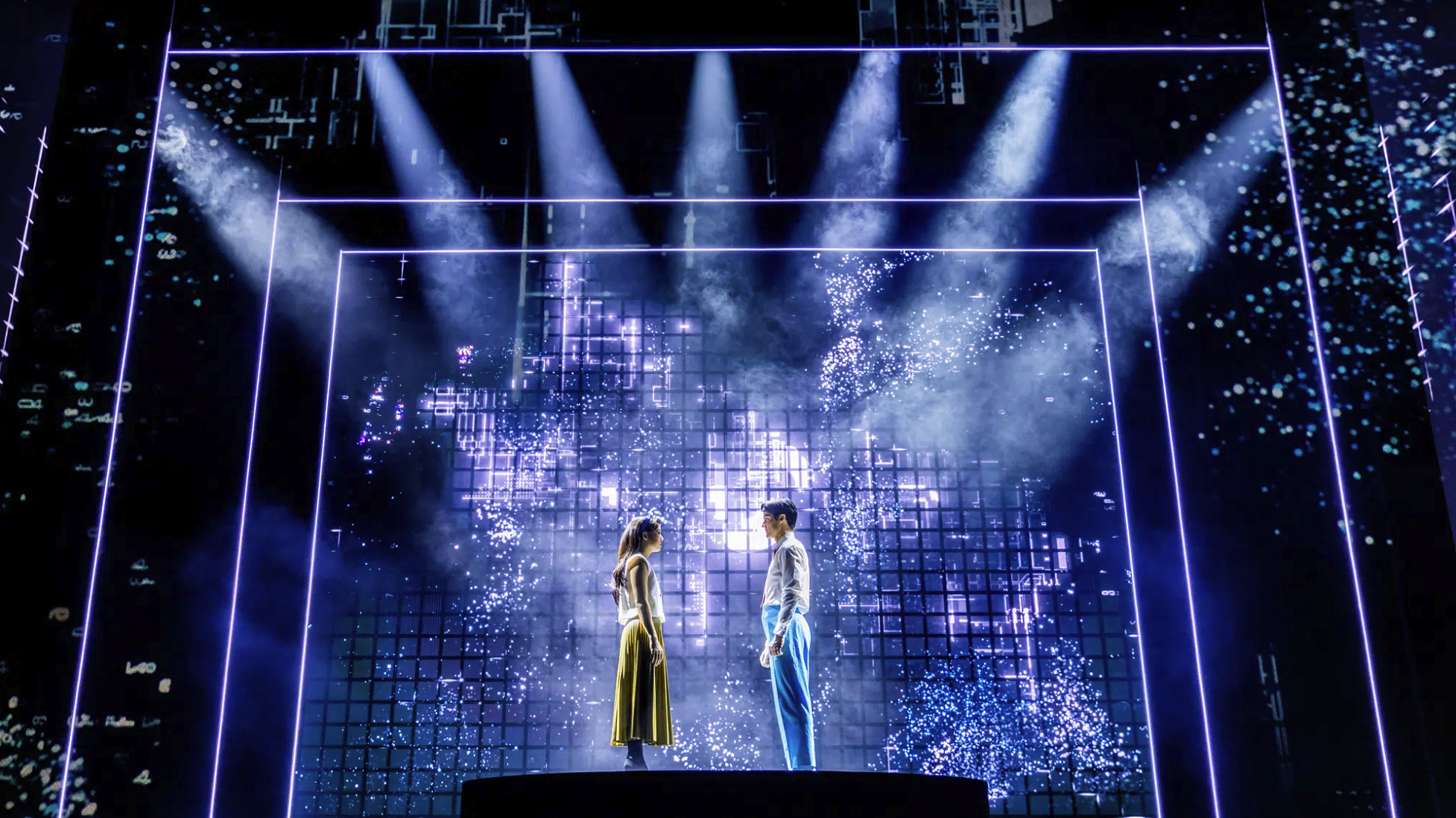“Maybe Happy Ending” Considers the Futures of Love
How do you know your feelings are real? How do you balance the equation of feelings and memories that make up a relationship—especially if you’re supposedly not able to understand these intangibles in the first place?
The musical Maybe Happy Ending presents the life cycle of a relationship between two Helperbots—robots created to assist humans in daily life—named Oliver and Claire in the year 2064. Tensions arise as soon as the pair meet: Oliver is an outdated version 3 Helperbot while Claire is a newer version 5. Neither of their numbers truly matter however, as both models are now retired; the production of their parts will eventually stop completely, leaving them to waste away to technological obsolescence in two separate apartments on the outskirts of Seoul. When Claire requests to borrow Oliver’s battery charger, a journey begins that takes them from the South Korean capital to Jejudo, an island off of the southern coast of Korea. In their time together, they find what can only be called love.
Maybe Happy Ending‘s current Broadway run at the Belasco Theatre began on November 12, 2024 with a small cast led by Darren Criss as Oliver and Helen J Shen as Claire. Featuring lyrics by Hue Park and music by Will Aronson, the musical originally debuted in South Korea in 2016, before making its way to New York.
Within the production’s tight 100-minute runtime, Claire and Oliver’s experiences with their humans—thus, their memories—hold different meanings for them. When Oliver insists his human, James (played by Marcus Choi), did not retire him willingly, Claire offers to accompany him to Jejudo to meet James. Unbeknownst to Oliver, Claire’s retirement was due to an irresolvable problem between her human and her human’s partner that leads them to fall out of love, leading Claire to distrust all humans.
For Claire, this trip initially stems from her realization that these may be some of her last memories; as such, she’d like to see the island’s fireflies. During the course of the trip, however, she discovers an unexpected connection with and care for Oliver. After a dramatic reunion for Oliver in Jejudo, Claire and Oliver return to their homes in Seoul. In a poignant dance scene, they touch each other’s temples (a signal that they are sharing memories) and reveal that their feelings are mutual.
Back in their small homes, Claire and Oliver perform their version of love. The audience laughs as they recognize familiar markers like learning to share a partner’s hobby or fighting over seemingly minute details. Performed adeptly, Criss and Shen dance a rhythm that fosters empathy towards these Helperbots who you forget, until the batteries truly start to drain, have a definitive end. In the face of this undeniable fact, what begins with the question, “Should we continue?” becomes “How will we grieve this love?”
Maybe Happy Ending asks the audience to imagine these Helperbots and foster a sense of empathy towards them. Even as they develop their own sense of questionable autonomy, as the Helperbots ultimately serve as a helping hand through the very end, they assist the human audience to contemplate the ways that we love each other and what happens to that love at the face of certain finality. Do we become jaded in seeking that connection again or do we practice a type of hope that requires some sacrifice, self-reflection, and a little courage to love again?
There is a strange feeling watching a musical about a universal story of love that takes place across Korea, performed by a cast of Asian American actors, and created by those of the diaspora and beyond in a beautiful theater in midtown Manhattan. It’s difficult to tell whether the usage of Korea as a location and sporadic Korean language is meant to serve as a shorthand for a sense of futurity. Does the play’s setting in Korea function differently in creating a sense of a future? Can this type of storytelling create an Asian Futurism that does not rely on the lineage of techno-orientalism? Or is it perpetuating the same tendency toward othering without agency, as we’ve seen in past narratives like Blade Runner or Ghost in the Shell (2017).
In a recent interview with Bridge News, Park and Aronson shared that their musicals are intentionally set in Korea and that if audiences look carefully they’ll observe the mixing of “Western and Eastern” characteristics. If notions of Asia Futurism are to extend beyond analyses of othering so that there are more complex futures that are for and of Asia, Maybe Happy Ending’s story and the circumstances of its run can be seen as one such attempt.
—Sophia Park is a writer and curator living in Brooklyn, NY and Gumi, South Korea. She is part of “slow cook”, a curatorial collaboration with Caroline Taylor Shehan. She was previously a curator for the 15th Gwangju Biennale and has worked with Singapore Biennale, Casco Art Institute: Working for the Commons, and others.
